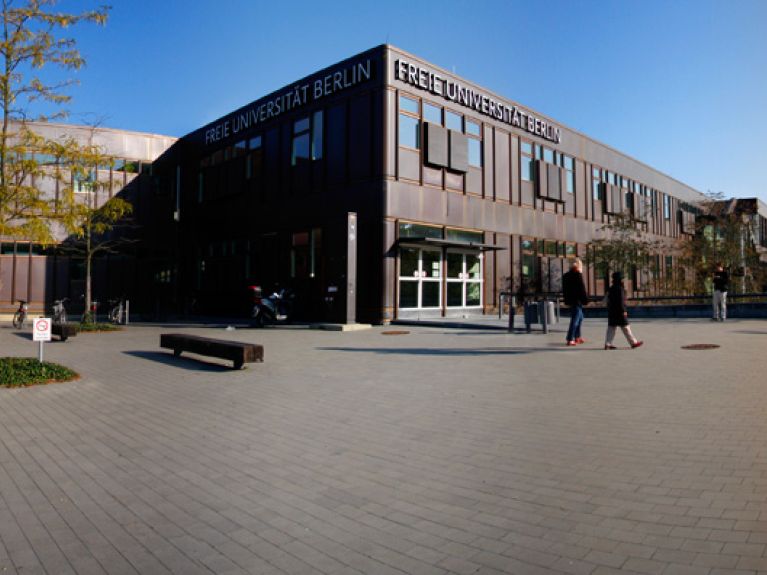Global research campus
A new, transnational research network in investigating the “principles of cultural dynamics”.

What role do economics, politics, religion and art play in the dynamics of cultural change? It is these kinds of fundamental questions regarding how we understand cultures that interest the humanities worldwide. Now, since autumn 2013, thanks to the global network organized by the Dahlem Humanities Center at the Freie Universität (FU) Berlin looking into the “principles of cultural dynamics”, scholars the world over have been able to interact.
Funded by the German Federal Ministry of Education and Research (BMBF), the network links six centers of humanities research at outstanding universities in Germany, France, Israel, China – and at two leading universities in the United States, namely Harvard University in Cambridge, Massachusetts, and Johns Hopkins University in Baltimore. “Since it was established, the Freie Universität has maintained extremely close ties with institutions in the United States involving academic exchanges,” explains Professor Joachim Küpper, director of the network at the FU. “The new subject-specific network represents an attempt to place this cooperation on a systematic footing for the first time and, at the same time, to extend it beyond the bilateral research relations between Germany and the United States.”
This transnational network is particularly beneficial for young academics. The reason: within the network both Master’s and Ph.D. students can apply over the next three years for junior fellowships at all the partner universities for a period of between four and six months. Additionally, there will be scholarship funding of up to five months for research and teaching open to postdoctoral students and young lecturers. The projected overall scenario envisages great mobility for both teaching staff and students alike between the partner universities and covers research residencies, lecture series, summer schools and joint workshops in Berlin or at the partner universities – and each year the activities will revolve around a “global humanities campus” for several weeks.
This network also involves the opportunity to lend research in the field of humanities global dimensions. Professor Hent de Vries, Director of the Johns Hopkins University’s Humanities Center in Baltimore, is convinced that it is time to start thinking about and researching culture and society on a transnational scale, even if it is not yet possible to say where this will take us. “Whether a new network of global humanities with different approaches will enable global citizens to orient or re-orient themselves within and especially beyond the world in its current make-up remains to be seen, but we should not settle for anything less.” ▪
Bettina Mittelstraß

